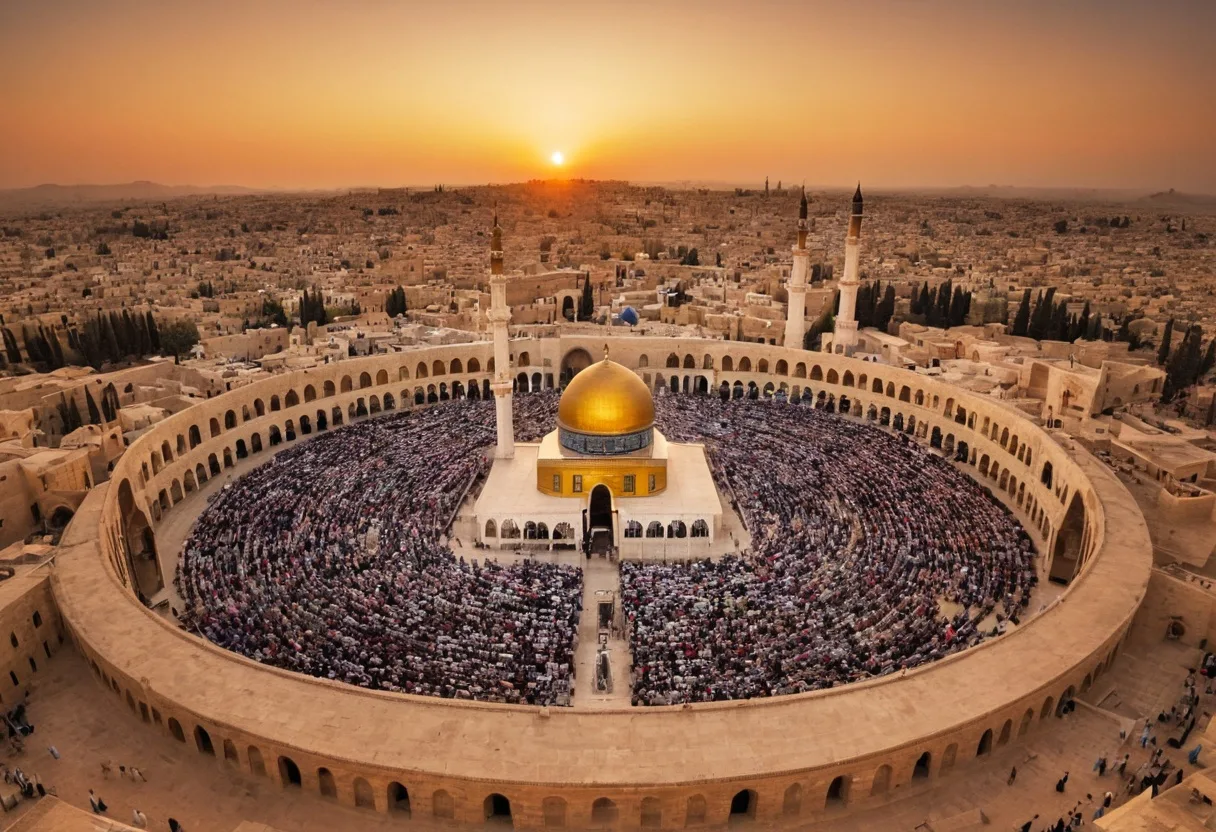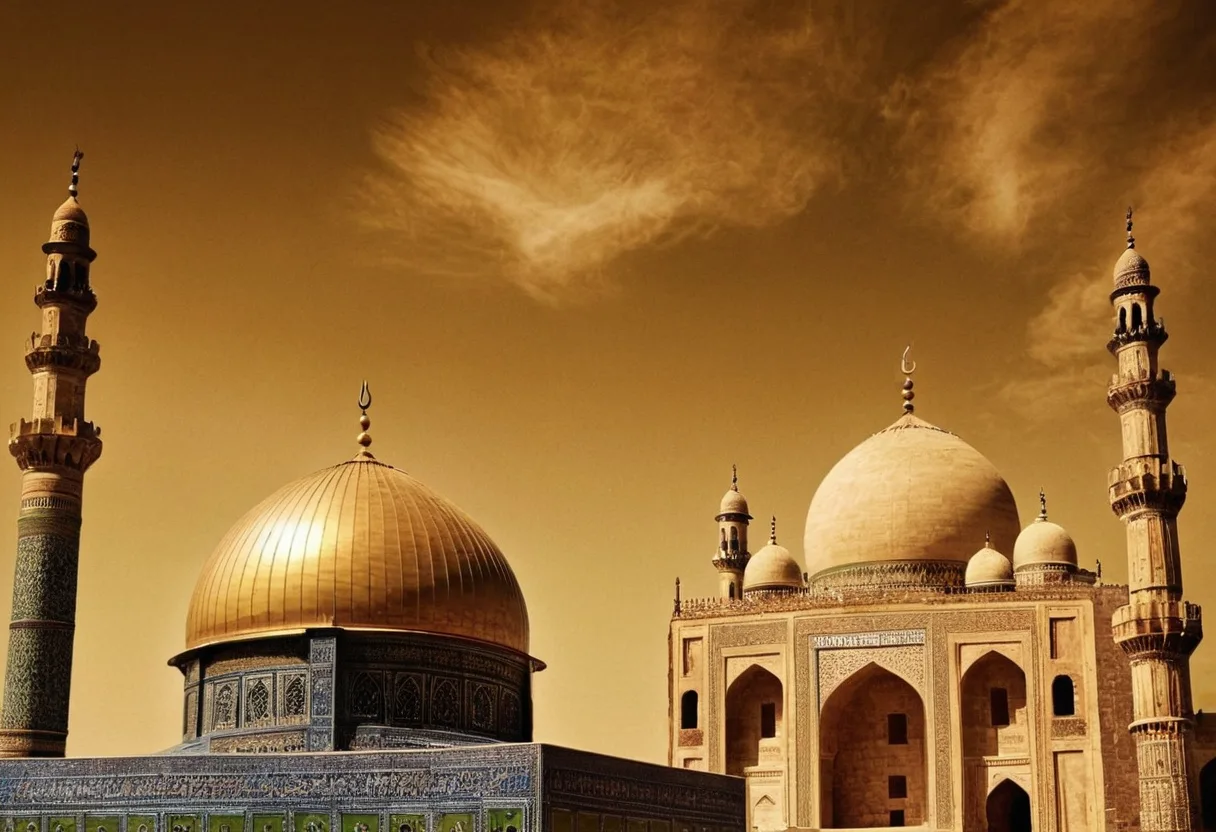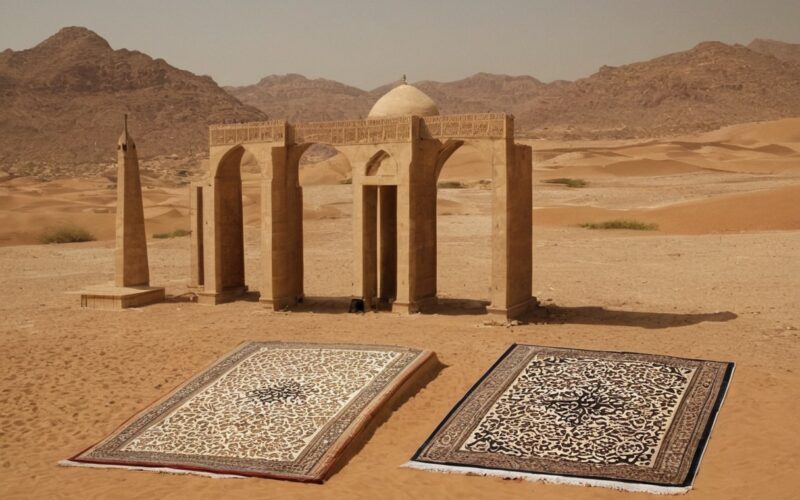Justice is one of the most cherished and fundamental concepts in Islam. Allah, in His infinite wisdom and mercy, is known as Al-Adl—The Just. His justice is perfect, absolute, and beyond human comprehension. It is through His justice that balance is maintained in the universe, ensuring that everyone is treated fairly according to their deeds. This blog will explore the meaning of Allah’s justice, how it manifests in our lives, and why understanding this attribute deepens our relationship with Him.
The Meaning of Al-Adl (The Just)
In Islam, Allah has many names and attributes, each reflecting an aspect of His perfection. Al-Adl, or The Just, refers to Allah’s absolute fairness and impartiality in dealing with His creation. Unlike human beings, whose judgment can be flawed by emotion, bias, or ignorance, Allah’s justice is flawless and all-encompassing. He rewards good deeds, punishes evil, and ensures that everyone receives what they deserve, both in this life and the Hereafter.
“Indeed, Allah does not wrong the people at all, but it is the people who are wronging themselves.” (Quran 10:44)
This verse emphasizes that Allah’s justice is perfect—He never wrongs anyone. Any injustice or suffering we experience is a result of our own actions or the trials of life, which are part of Allah’s plan to test and elevate us.
Justice as a Core Principle in Islam
Justice is a core value in Islam, and it extends beyond the divine realm into how Muslims are instructed to live their lives. Allah commands believers to act justly in all their dealings, whether it’s with family, friends, strangers, or even enemies. Justice is a moral imperative that maintains harmony in society and brings individuals closer to Allah.
“O you who have believed, be persistently standing firm in justice, witnesses for Allah, even if it be against yourselves or parents and relatives. Whether one is rich or poor, Allah is more worthy of both.” (Quran 4:135)
In this verse, Allah calls upon the believers to uphold justice, even if it means going against their own interests or those of their loved ones. This shows the weight and seriousness of justice in Islam. It is not a choice, but an obligation that must be upheld under all circumstances.
Divine Justice in the Hereafter
One of the key aspects of Allah’s justice is the Day of Judgment, when every soul will be held accountable for its deeds. The Quran repeatedly reminds us that on that day, no one will be wronged, and everyone will receive what they deserve according to their actions in this life.
“And We place the scales of justice for the Day of Resurrection, so no soul will be treated unjustly at all. And if there is [even] the weight of a mustard seed, We will bring it forth. And sufficient are We as accountant.” (Quran 21:47)
This verse illustrates the meticulous nature of Allah’s justice—every deed, no matter how small, will be weighed and accounted for. It is a reassurance for the believers that justice will ultimately prevail and that those who have wronged others or committed evil will face consequences.
The Balance of Justice and Mercy

While Allah is Al-Adl, The Just, He is also Ar-Rahman (The Most Merciful) and Ar-Raheem (The Most Compassionate). His justice is always tempered with mercy. While He holds us accountable for our actions, He also forgives those who sincerely repent and seek His forgiveness.
“But whoever repents after his wrongdoing and reforms, indeed, Allah will turn to him in forgiveness. Indeed, Allah is Forgiving and Merciful.” (Quran 5:39)
Allah’s justice is not harsh or rigid; it is balanced with His infinite mercy. This teaches us that while we should strive to live justly, we should also seek forgiveness when we fall short, knowing that Allah’s mercy is always available to those who repent with sincerity.
Justice in Human Relationships
Justice is not only a divine attribute but also a fundamental part of human relationships in Islam. Allah commands us to be just in all aspects of our lives—whether it’s in business, family matters, or how we treat others. Justice is the foundation of a healthy, functioning society and is essential for maintaining peace and harmony.
“Allah commands you to render trusts to whom they are due and when you judge between people to judge with justice. Excellent is that which Allah instructs you. Indeed, Allah is ever Hearing and Seeing.” (Quran 4:58)
Muslims are encouraged to embody justice in every aspect of their lives, reflecting Allah’s own attribute of Al-Adl. Whether it’s paying workers their fair wages, being honest in business transactions, or treating family members equitably, justice must be present in every action.
Injustice and Its Consequences
Just as Allah commands us to uphold justice, He also warns against injustice (zulm). Injustice is one of the greatest sins in Islam and has severe consequences both in this life and the Hereafter. Whether it’s oppressing others, violating their rights, or causing harm, injustice disrupts the balance that Allah has established in creation.
“And whoever commits injustice, We will make him taste a great punishment.” (Quran 25:19)
Islam teaches that any form of injustice, whether done to another person or to oneself, will have consequences. Injustice leads to corruption, chaos, and suffering, and it is the opposite of the harmony and peace that justice brings.
Striving for Justice in a Complex World

In today’s world, maintaining justice can be challenging. From systemic inequalities to personal biases, the world is full of injustices. However, Islam calls upon us to strive for justice, even when it is difficult. By following the teachings of the Quran and the example of the Prophet Muhammad (peace be upon him), we can work towards creating a fairer and more just society.
“Indeed, Allah commands you to uphold justice and good conduct, and giving to relatives, and forbids immorality, bad conduct, and oppression. He admonishes you that perhaps you will be reminded.” (Quran 16:90)
This verse encapsulates the Islamic view on justice: it is not just about legal fairness but encompasses all aspects of moral conduct and responsibility. By living according to these principles, we can contribute to a more just world that reflects Allah’s divine justice.
Conclusion
Allah’s justice, as expressed through His name Al-Adl, is a fundamental pillar of Islamic belief. His fairness is absolute, and His justice encompasses all of creation. By understanding and reflecting on Allah’s justice, we are reminded of our own responsibilities to live justly, treat others with fairness, and uphold the moral balance that Allah has established in the universe. In a world often filled with injustice, the teachings of Islam provide a blueprint for maintaining fairness, integrity, and harmony in all aspects of life.
Reflect: How can you bring more justice into your own life and relationships? What steps can you take to reflect Allah’s attribute of Al-Adl in your daily actions?
Want to learn more about living a just life in Islam? Check out our post on The Importance of Fairness in Islam or explore how Allah’s mercy complements His justice in our article on Allah’s Mercy and Justice.
Keywords: Allah’s justice, Al-Adl, justice in Islam, fairness in Quran, Islamic justice, divine justice, Allah’s attributes, oppression in Islam, Quran on justice.

